For us oldies it was impossible to watch Greta Thunberg speak at the UN Climate summit 23 September 2019 without thinking about another child and her speach to a UN summit 27 years earlier. To see the large similarities…and the gigantic differences.
Others have obviously also compared Greta and Severn Suzuki, for example Swedish newspaper Dagens Nyheter, Swedish tabloid paper Expressen, Vancouver Sun (Canada, I think this a daily journal where Severn lives today), Aftenposten (Norway), Irish times (Ireland obviously), Linkiesta (Italy), Eldiario (Spain), Jakarta post (Indonesia), Geo-magazine (Germany), and many individual bloggers. And of course many haters, which I wont link.
So I thought it would be worth it to make my own comparison.
“I’m only a child…”
In June 1992 the UN Earth summit in Rio the 12 year old girl Severn Suzuki from Canada gave a speach that made her “the girl who silenced the earth for five minutes”.
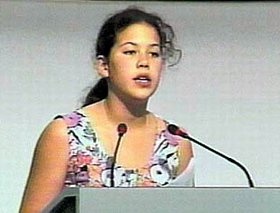 Severn Suzuki speaking at the UN Earth summit in June 1992, Rio de Janeiro.
Severn Suzuki speaking at the UN Earth summit in June 1992, Rio de Janeiro.
Quotes from Severn’s UN-speech:
“Loosing my future is not like loosing an election, or a few points at the stock market”
“I’m here to speak for all generations to come…”
“I’m only a shild, and I don’t have all the solutions…”
“In my anger, I am not blind, in my fear, I am not afraid of telling the world how I feel.”
“You are deciding what kind of a world we are growing up in.”
“What you do makes me cry at night.”
“I challenge you! Please, make your actions reflect your words!”
Quotes from Grets’s UN speech:
“We will be watching you!” (nervous lafter from audience)
“You all come to us young people for hope. How dare you?!”
“You have stolen my dreams and my childhood with your empty words!”
“We are in the beginning of a mass extinction, and all you can talk about are money and fairytales of eternal economic growth. How dare you?!”
“For more than 30 years the science have been chrystal clear. How dare you look away?!”
“But those numbers…they also rely on my generation sucking hundreds of billions of tons of your CO2 with technology that barely exists.”
“How dare you pretend that this can be solved with just business-as-usual and some technical solutions?”
“…you are still not mature enough to tell it like it ⁹is.”
“You are failing us. But young people are starting to understand your betrayal. The eyes of all future generations are upon you. And if you choose to fail, we will never forgive you!”
“Right here, right now, is were we draw the line.”
“Change is comming, weather you like it or not.”
The Similarities:
- They are young and women. That provoce irrationally agressive critics from old and middle aged men.
- They faced a majority of middle aged career men: diplimats and politicians.
- They both stress the injustice between rich and poor countries.
- They both stress the urgency to stop destroying the earth’s environment and climate.
The differences:
- Severn represented a youth organisation (Environmental Childrens Organisation, ENSO) that at the time of her speach had four members. Greta lead or inspire thousands of other youngsters, and have been joined by millions when Fridays4Future call for global strike events.
- Greta speach instantly became viral over the internet’s social channels and alternative media. Severn’s speach was first spread by television since in 1992 the internet was still without graphics, without sound, and only used by scientists. With only traditional media, she made s splash, but was then forgotten by most.
- Severn repeats “I’m only a child”, yet the message appears to be: “listen to the children!“. Greta’s central message is “Listen to the scientists!“
- In Greta’s speach social injustices has got a climate dimension of it’s own. That obviously reflects whst has happened in climate science.
- When Severn spoke in 1992 IPCC had come out with their first report. As convincing at it was, the work to convince the public and leaders had just begun. On the other hand, the climate change deniers didn’t yet receive as big money from the fossil fuel industry as they would get later on. In present time, when Greta refers to “listen to the scientists” it is over 6 major, and numerous specialised, IPCC reports and many 10,000’s of peer review papers. In Europe the climate change deniers appears largely beaten, but in the US they controle the governing party and the president.
- I think that in 1992 UN was very much in controle of the situation and that they searched for a child to speak at the summit to remind the participants of their responsibilities to future generations. With Severn they found a perfect candidate as she had grown up with the environmental scientist and activist, David Suzuki, as father and mentor. With Greta in 2019, the UN are not in controle. The young climate activists run the demonstrations in New York and globally independently of the UN. Furthermore, as much as the UN might have hoped that Greta could help press the nations to perform better in the Paris-agreement, had they not made space for Greta in their program, there would have been an outcry from millions of protesters.
- Severn was begging the grown-up generations to stop destroying the environment. Greta is presenting demands from her generation, and she is issuing warnings.
In conclusion, despite the similarities at the surface, Greta, Fridays4Futures, Extinction Rebellion and other parts of this new generation are something completely different than Severin and her 3 best friends in ENSO.
Expressed as an equation (just for fun):
Greta Thunberg – Severn Suzuki
=
social media on internet
+ rapid creation of a global youth organisation
+ 27 years of science that has convinced many more that it is urgent
+ 27 years of political failures to deal with climate change
+ the largest and best educated generation ever
Severn didn’t have a chance to do what Greta has done.
Finally this reflection: there is a desperation in this new movement, motivated by the crisis that my generation caused by failing to act on climate changes. If their demands are not met, their peacefull protests will change. To what I don’t know. But they won’t give up, and if their current methods doesn’t work, they will look for alternatives. Most likely, the people with power will claim that they have been “radicalised”, but in fact, the warnings are already there now. The kids are just playing nice, at first, giving us a last chance to act.
Will we?

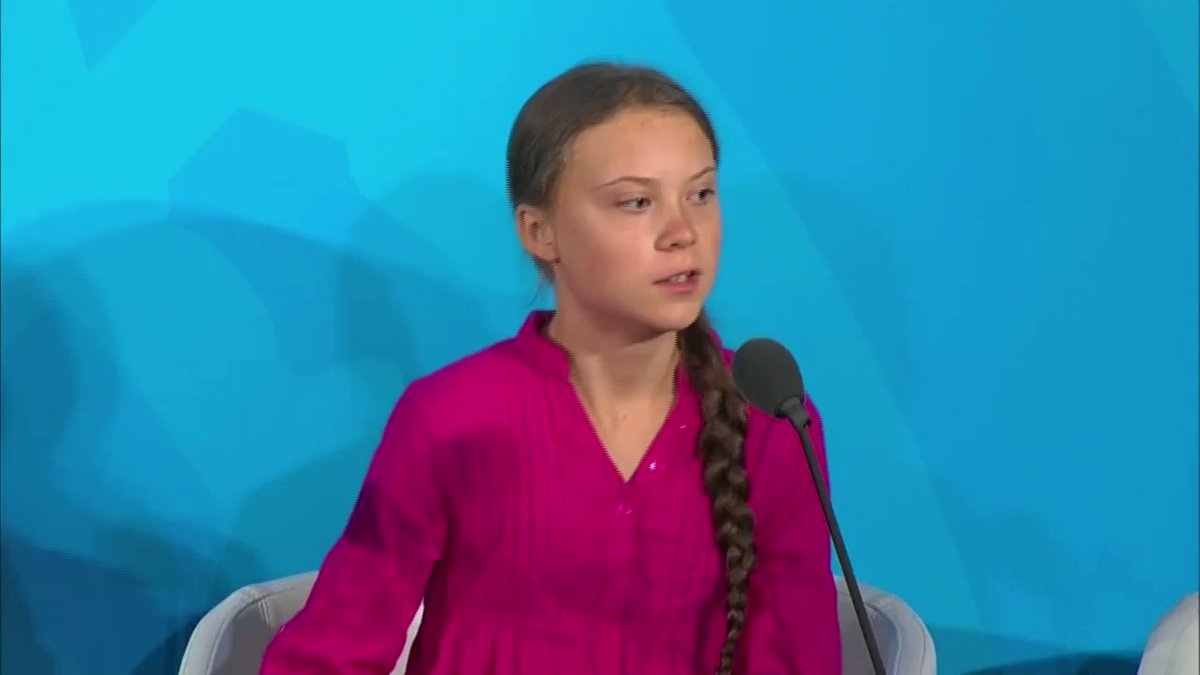
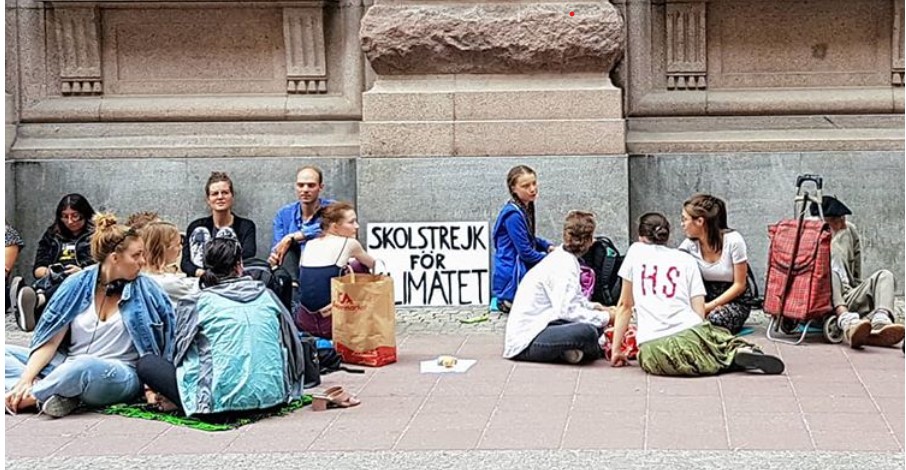
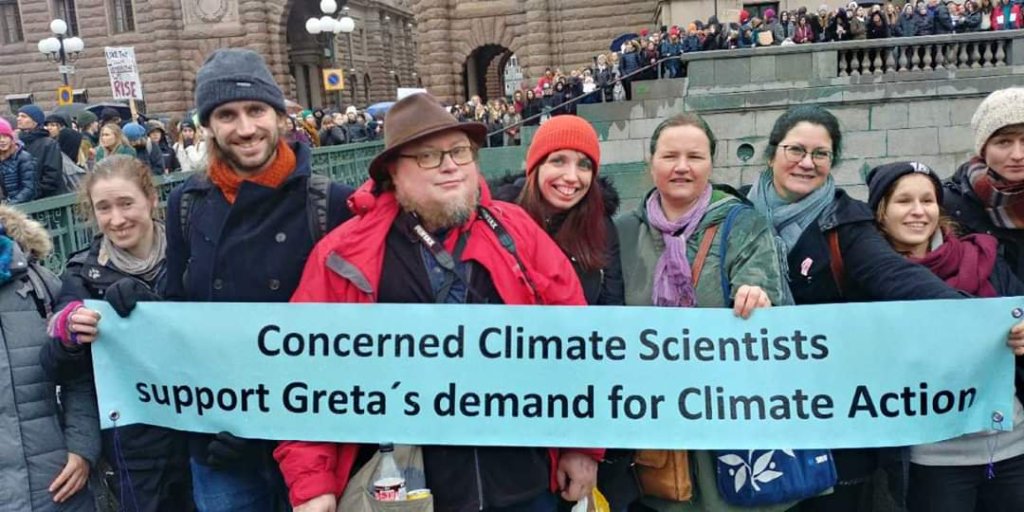


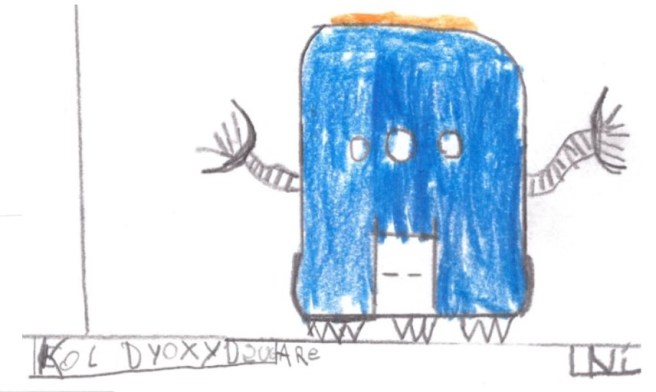

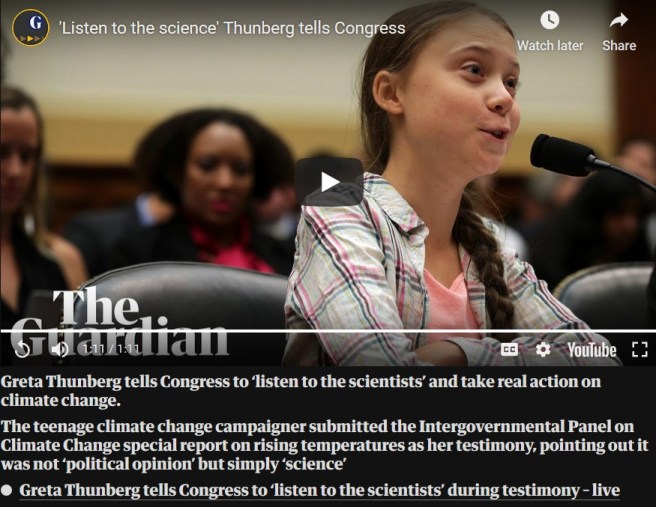
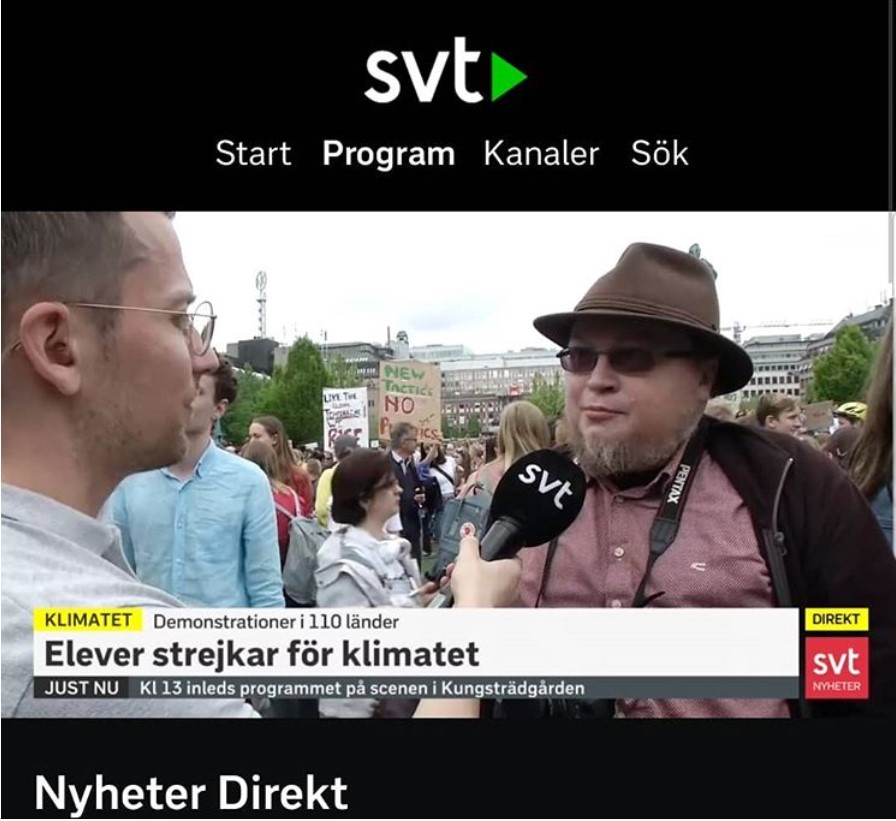
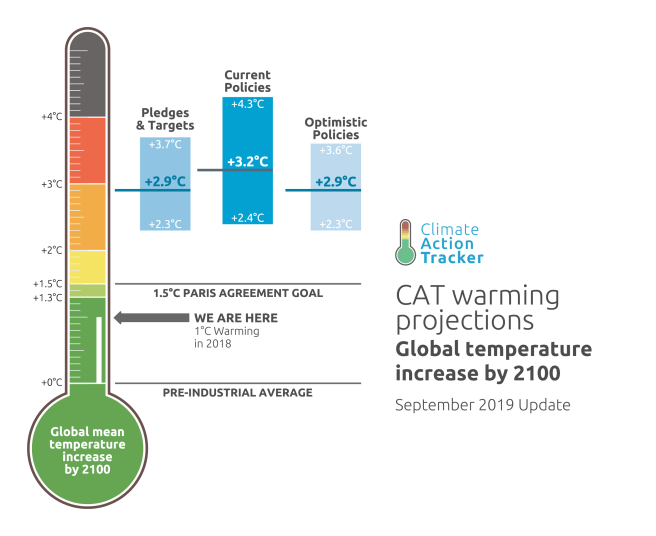
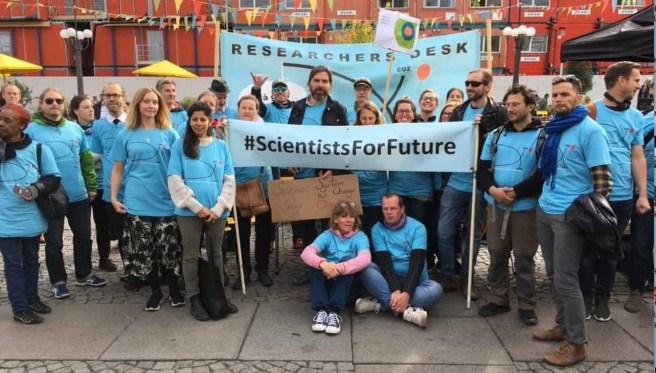
You must be logged in to post a comment.